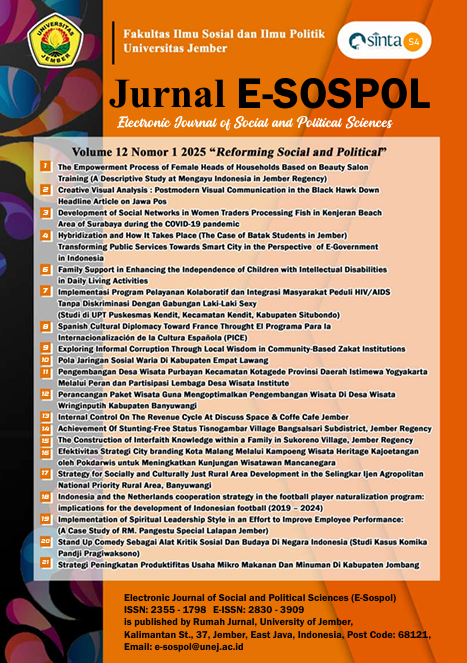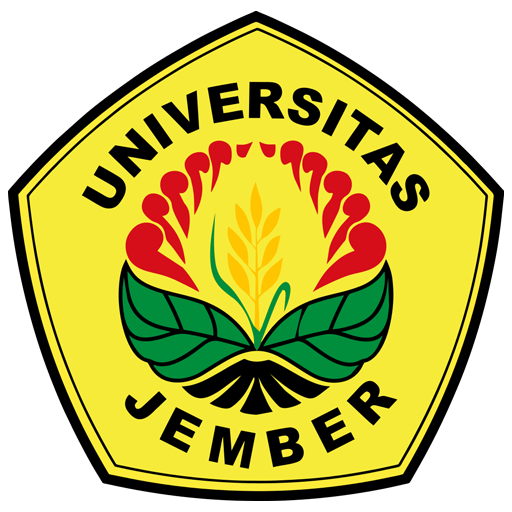The Empowerment Process of Female Heads of Households Based on Beauty Salon Training (A Descriptive Study at Mengayu Indonesia in Jember Regency)
DOI:
https://doi.org/10.19184/e-sospol.v12i1.53696Abstract
Female heads of households often face difficulties in accessing various basic needs and public services due to social stigma and economic limitations. Mengayu Indonesia, a private organization, strives to empower female heads of households through beauty salon training. This research aims to analyze and describe this empowerment process. This study employs a qualitative research approach with a
descriptive type. The research location was determined using the purposive area technique. The informants were selected using a purposive sampling technique. Data collection techniques involved three methods: observation, interviews, and documentation. Data analysis was conducted through three stages: data condensation, data presentation, and conclusion drawing or verification. Data validity was ensured through three stages: credibility test, transferability test, and dependability test.
Research at Mengayu Indonesia shows that empowerment is carried out through the stages of assessment, planning, training and sales, and evaluation. Substantially, this process is similar, namely identifying the potential, problems, and opportunities of the area, developing group plans, implementing group activities, and continuously monitoring the process and results in a participatory manner. Beauty salon training has a positive impact on female heads of households by improving their skills, self confidence, and economic independence.
Downloads
Downloads
Published
Issue
Section
License
Penulis yang mengusulkan naskahnya untuk dapat diproses penerbitannya pada e-SOSPOL dianggap telah menyetujui beberapa hal sebagai berikut:
1. Penulis tidak dapat menarik naskah yang telah usulkan untuk diproses hingga mendapat jawaban dari Ketua Dewan Penyunting atas status naskah artikel ilmiahnya (diterima atau ditolak untuk diterbitkan).
2. Penerbit tidak bertanggung jawab terhadap kasus plagiasi atas artikel yang terbit pada e-SOSPOL
3. Penerbit tidak bertanggung jawab atas data dan isi dari artikel yang diterbitkan pada e-SOSPOL, dan sepenuhnya merupakan tanggung jawab penulis.







